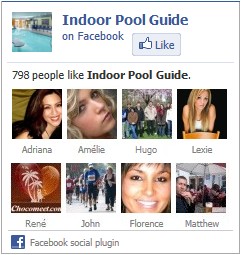
Types of Chlorine
Chlorine is available as a liquid (sodium hypochlorite), powder or tablet form (calcium hypochlorite). Both of these forms provide only chlorine to disinfect the water.
Chlorine is also available as a mixture of chlorine and cyanuric acid. In these forms, it is available as a powder (sodium-dichloroisocyanuric acid) with a trade name of “Dichlor” or in a tablet, stick or cartridge form (trichloro-isocyanuric acid) commonly know as “Trichlor”. These two chemicals add a mixture of both chlorine and isocyanuric acid (stabiliser) to the water. The function of a stabiliser is discussed below.
Types of Bromine
Bromine is commonly available in a tablet or powder form, in a chemical known as BCDMH — Bromo-chlorodimethylhydantoin. The use of this chemical adds a mixture of chlorine and bromine to the water.
Bromine is more resistant to heat than chlorine alone, and therefore is generally used in facilities with warmer water temperatures, such as spas. It should not be used in outdoor pools, as it is susceptible to breakdown by UV light.
Salt Water Chlorination
Salt water chlorination systems produce chlorine by passing an electric current through water containing salt, via special electrodes. Some domestic salt water chlorinators may not produce enough chlorine to maintain the required level of chemicals in the water during periods of heavy usage. During hot conditions, pools and spas using salt water chlorination may need to be checked more frequently, and extra chlorine added if necessary.
Salt water chlorinators can be susceptible to a build up of white coloured scale on the electrodes, particularly if the water contains high levels of calcium. This can interfere with the efficiency of the system to produce chlorine, and so these units need to be manually cleaned on a regular basis, as recommended by the manufacturer. Many of the modern salt chlorinators incorporate self-cleaning functions that reduce the need for manual cleaning.
Stabiliser (Isocyanuric Acid)
Where outdoor pools and spas are exposed to direct sunlight, the ultraviolet light in the sunlight, rapidly breaks down chlorine in the water, increasing chlorine in the water, increasing chlorine consumption. Adding stabiliser (isocyanuric acid) to the water in outdoor pools or spas shields the chlorine from the ultra-violet light, and significantly reduces the amount of chlorine consumed.
Stabiliser may be added to the water as two forms, either as pure isocyanuric acid, or combined with chlorine in the products Dichlor or Trichlor.
Isocyanuric acid dissolves slowly in water whilst Dichlor and Trichlor dissolve rapidly.

